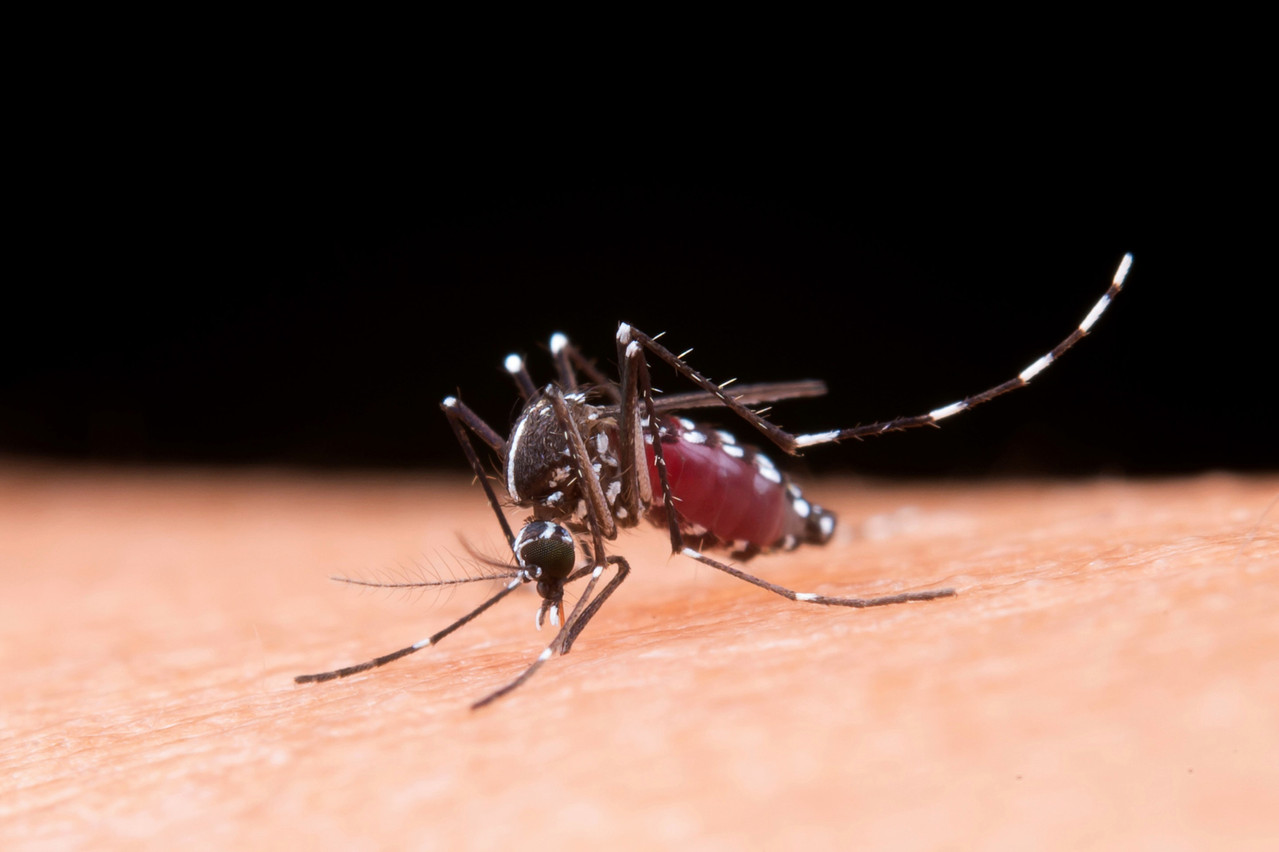Have you had a fever for a few days? Pain in your muscles and joints, as if your body were on fire? Do you feel exhausted, drained, unable to get out of bed? And those headaches, that discomfort behind your eyes, have you ever experienced them? It might not be just a seasonal virus. It could be dengue fever.
Or maybe everything was fine, then sudden fatigue has you couch-locked. A mild fever, a persistent headache, a touch of nausea? What if it's West Nile virus? Most of the time, it goes unnoticed. But for some, it can cause more serious problems: disorientation, neck stiffness, or even neurological disorders.
In both cases, the common thread is often a mosquito bite. Just one. So if you've just returned from a trip or live in an area where these mosquitoes are present, stay vigilant. What you're feeling may not be trivial.
As the weather warms up and the days get longer, Luxembourg is entering peak mosquito season--and experts are warning that the risks to public health are growing.
So far, Luxembourg hasn’t seen major outbreaks of mosquito-borne diseases. But the European Centre for Disease Prevention and Control (ECDC) told Paperjam that the risks are rising. Two mosquito species known to carry viruses are already present: , an invasive species that can spread dengue and chikungunya, and Culex pipiens, a common mosquito that can carry West Nile virus.
An expert from the ECDC added that the Asian tiger mosquito (Aedes albopictus), known for its aggressive biting and ability to spread serious diseases, has become established in regions close to Luxembourg. This species is already causing outbreaks in southern Europe.
“In recent years, we have been seeing increases in the number of locally acquired cases of dengue and West Nile virus infections, particularly in southern European countries,” the expert said. “We also see more regions affected each year and for longer periods, which is of concern.”
Why the risk is rising
Climate change is making European summers hotter and wetter--ideal conditions for mosquitoes to breed and spread. The ECDC expert elaborated, “Climate change is expected to extend the mosquito-borne disease transmission season by creating more suitable conditions for mosquitos to thrive. This means that the season starts earlier and finishes later in various parts of Europe, hence increasing the period when we can observe cases and potentially the number of cases.”
“We can expect with high confidence that there will be human West Nile virus infections in Europe in 2025,” the agency warns. The disease has been reported in the EU every year since 2008, and the number of cases has gone up in recent years.
Dengue is also on the rise. The ECDC expert said that more cases have been reported lately than the average for the past 15 years--and they expect the trend to continue this summer. Chikungunya, although less common, is still a concern. All three viruses are mainly spread by the Asian tiger mosquito.
How to stay safe
As mosquito season begins, the ECDC urges residents to take a few simple steps to protect themselves and their communities:
• Cover up and repel: “Individual protection against mosquito bites is crucial,” is the first piece of advice given by the expert. Wear long sleeves and trousers, especially at dawn and dusk when mosquitoes are most active. Use insect repellent--and if you're travelling to tropical areas, keep using repellent for three weeks after return.
• Get rid of standing water: Mosquitoes breed in stagnant water. Empty water from flowerpots, tyres, buckets, gutters--anywhere water might collect.
• Control mosquito numbers: In areas with lots of mosquitoes, the use of mosquito sprays (called adulticides) can help reduce their numbers. However, these products may impact the environment, so use them carefully.
• Act early: “Ensuring early detection of the cases is imperative.” The expert noted the importance of regular monitoring, especially for places that handle donated blood, organs and other human tissues.
Awareness is key
Knowing the risks--and how to reduce them--is one of the best ways to stay safe.
“It is paramount to raise awareness among the general public, healthcare professionals, and travellers regarding mosquito-borne diseases,” the expert emphasised.
The ECDC offers a user-friendly guide along with detailed information on mosquito species, disease vectors, the latest maps showing their spread, mosquito surveillance guidelines, and more--all available .
